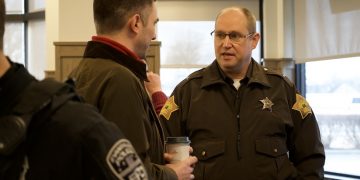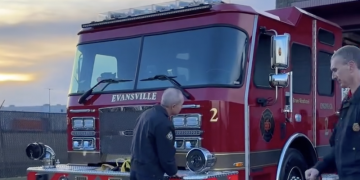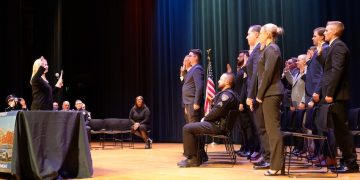President Joe Biden and House Speaker Nancy Pelosi followed by several other Democrat representatives and supporters, have been blaming Donald Trump and especially the GOP supporters to be the majority of the vaccine hesitant people causing new Covid-19 waves like we do now.
A recent study revealed that they were all wrong. According to Kaiser Family Foundation study, there are several groups, including young people and minorities, who are known to be Democratic voters, but are vaccine hesitant in the same time with one of the lowest vaccination rates compared to other groups.
But according to a study recently published in the scientific journal Deviant Behavior, who endorsed President Donald Trump’s denials of the severity of the COVID-19 pandemic were more likely to adopt justifications for deviant behavior related to social distancing, according to new research conducted during the early stages of the coronavirus outbreak.
“There were two considerations that underlay our interest in this topic. First, it was clear to us that the pandemic would exert a major impact on American society. We had no idea that it would result in more than 600,000 deaths. Still, we were aware that its impact would be consequential,” said study author Francis T. Cullen, a distinguished research professor emeritus of criminal justice at the University of Cincinnati.
“Second, we were persuaded that unlike other public health crises, the president might be a source of beliefs that encouraged risky behavior rather than discouraging them — as would be typical of any other president. President Trump was important because he is charismatic and, we suspected, exerted much influence over a substantial segment of the American populace.”
“The question was whether his denials of the dangers of the pandemic would affect the beliefs that American had — in particular, whether they would embrace ‘techniques of neutralization’ that would permit them to ignore social distancing behaviors,” Cullen explained. “It was possible that Donald Trump’s apparent influence was spurious and explained by factors such as low self-control (willingness to take risks), political party and beliefs, fear of COVID, and demographic characteristics.”
“In the end, the question we addressed is: Did Donald Trump’s denials about the dangers of the pandemic contribute to Americans embracing beliefs that would neutralize social distancing norms and permit, if not encourage, non-compliance with these norms?”
What differs this survey from the other recent surveys is the fact that this one was conducted in the early stages of the Covid-19 pandemic on March 28–29, 2020, just four weeks after United States recorded the first deaths as a result of the virus.
The SARS‐CoV‐2 virus was officially declared to be a pandemic by the World Health Organization on March 11,2020. Since then, every single government has urged the residents in its countries to follow certain measures in order to stay safe from the virus like washing hands, wearing masks and practice social distancing.
Additionally, this study wanted to discover something more like how much the political parties and officials can affect the people’s approach on the virus. Cullen and his colleagues found that about one in five Americans expressed agreement with Trump’s denials of the dangers of the pandemic. And some striking numbers were discovered.
“According to President Trump, the coronavirus was invented by the Chinese and we have every right to call it the ‘China Virus,” this theory was backed up by 34% of the people questioned.
“As President Trump says, we need to make sure that the ‘cure is not worse than the disease’ – that is, we need to open up the economy soon even if this means some more people get sick and possibly die,” almost 28% of the people questioned agreed with this announcement.
“President Trump is correct when he says that the coronavirus is mostly a hoax used by the Democrats to prevent his reelection,” more than 18% of the people agreed.
“It is a good idea to follow President Trump’s advice for everyone to pack churches on Easter Sunday, which is on April 12,” more than 18% of the people agreed with this thesis.
Although this research was conducted in the very early stages of the pandemic, it clearly shows different approaches among different groups of people depending on their social, financial and geographic status. But agreement with Trump’s pandemic denials was the strongest predictor of endorsing these techniques of neutralization.
What is even more, most of the Trump voters decided to listen to his statements and adopted beliefs that social distancing is not required and won’t help anyone battling the virus.
“President Trump is a historic leader who has the power to shape the beliefs and behavior of many Americas,” Cullen told PsyPost. “In the pandemic, his denials of the serious health risks of COVID-19 contributed to the public — starting early on in the pandemic — embracing beliefs that would permit non-compliance with social distancing norms. By being the ‘denier in chief,’ he contributed the U.S. public health crisis and likely to the illness and death of countless Americans who placed their faith in him.”
However, Cullen noted that the study only focused the endorsement of neutralization beliefs. “We did not measure whether these beliefs led to subjects ignoring social distancing norms or to their becoming ill. These effects are plausible, but they are not demonstrated by our study,” he explained.

















































































